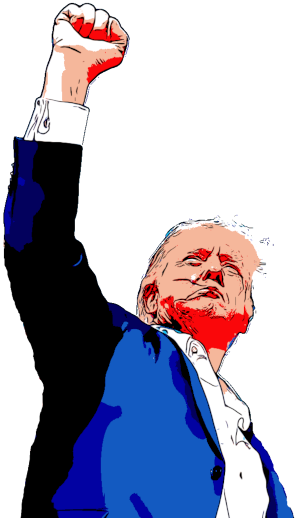Trump Targets Zelensky's Leadership
President Trump criticizes Ukrainian President Zelensky as a ‘Dictator without Elections’ amid ongoing war efforts.
In a recent outburst on his social media platform, Truth Social, President Donald Trump has taken aim at Ukrainian President Volodymyr Zelensky, branding him a ‘Dictator without Elections.’ This sharp critique comes on the heels of Zelensky’s complaints about being excluded from diplomatic talks between the United States and Russia, highlighting the escalating tensions and the complex web of international relations at play.
Trump’s Critique of Zelensky
Trump’s comments on Zelensky were not only direct but also laced with a sense of personal disdain. He began by referring to Zelensky as ‘a modestly successful comedian,’ a nod to Zelensky’s background before entering politics. This framing sets the stage for Trump’s broader critique, where he accuses Zelensky of leveraging his position to draw the United States into a costly war that, according to Trump, was avoidable and unwinnable.
Trump’s post detailed the financial burden on the United States, stating that the country has spent $350 billion on the war effort, significantly more than Europe’s contribution. He argued that the U.S. has shouldered an unfair share of the financial load, emphasizing the geographical distance and the perceived lesser importance of the conflict to the U.S. compared to Europe.
The former president’s attack did not stop at financial concerns. He accused Zelensky of refusing to hold elections, a serious allegation that touches on the democratic legitimacy of Zelensky’s leadership. Trump suggested that Zelensky’s refusal to hold elections is due to low approval ratings in Ukraine, implying that Zelensky is clinging to power undemocratically.
Implications for U.S.-Ukraine Relations
Trump’s comments are not just a personal attack but have broader implications for U.S.-Ukraine relations. By criticizing Zelensky as a dictator, Trump is questioning the very foundation of Ukraine’s governance and its alignment with democratic values, which could influence U.S. policy and public opinion towards Ukraine.
The timing of Trump’s remarks is also significant, as they come amid ongoing efforts by his administration to negotiate peace between Ukraine and Russia. Trump claimed that his administration is ‘successfully negotiating an end to the War with Russia,’ suggesting a proactive approach to resolving the conflict that contrasts with what he perceives as the inaction of the Biden administration and Europe.
Trump’s narrative also paints Zelensky as someone who is more interested in maintaining the ‘gravy train’ of financial support than in achieving peace. This accusation is particularly damaging as it undermines Zelensky’s credibility and suggests that his leadership is driven by self-interest rather than the welfare of his country.
The Broader Context of the Conflict
The war in Ukraine has been a contentious issue globally, with various countries taking different stances on how to approach the conflict. Trump’s critique of Zelensky comes at a time when the international community is grappling with how to respond to Russia’s actions and support Ukraine without escalating the situation further.
Zelensky’s exclusion from recent diplomatic talks between the U.S. and Russia, held in Saudi Arabia, has been a point of contention. Zelensky expressed his frustration at being left out of these discussions, emphasizing that decisions about the war cannot be made without Ukraine’s input. This sentiment underscores the delicate balance of diplomacy and the need for all parties to be involved in peace negotiations.
Trump’s administration, represented by figures like Secretary of State Marco Rubio and National Security Adviser Michael Waltz, has been actively engaging in diplomatic efforts in Europe and the Middle East. These efforts are aimed at finding a resolution to the conflict, but Trump’s public criticism of Zelensky could complicate these negotiations.
The Role of Public Perception
Public perception plays a crucial role in international relations, and Trump’s comments are likely to influence how Americans view Zelensky and the war in Ukraine. By framing Zelensky as a dictator, Trump is tapping into a narrative that resonates with those who are skeptical of foreign aid and intervention.
Trump’s support for ending the war quickly is clear, but his method of public criticism and his portrayal of Zelensky as a power-hungry leader may alienate those who see Ukraine as a victim of Russian aggression. The challenge for Trump’s administration will be to navigate these perceptions while pursuing a diplomatic solution that brings peace to the region.
In conclusion, President Trump’s recent comments on Ukrainian President Volodymyr Zelensky as a ‘Dictator without Elections’ mark a significant escalation in his critique of Ukraine’s leadership. These remarks come at a critical juncture in the ongoing war and could have far-reaching implications for U.S.-Ukraine relations and the broader international effort to resolve the conflict. As the situation continues to unfold, the world will be watching closely to see how these diplomatic efforts progress and whether Trump’s public stance will influence the outcome.

